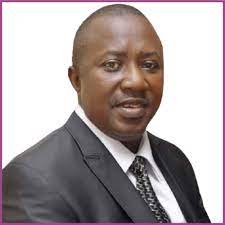Politics
D4D Poised To Engender Democratic Ideals
The prevalent political culture would be changed through a consistent awareness campaign, opining that it could be achieved by teaching the electorate democratic norms, active citizenship participation and core democratic values.
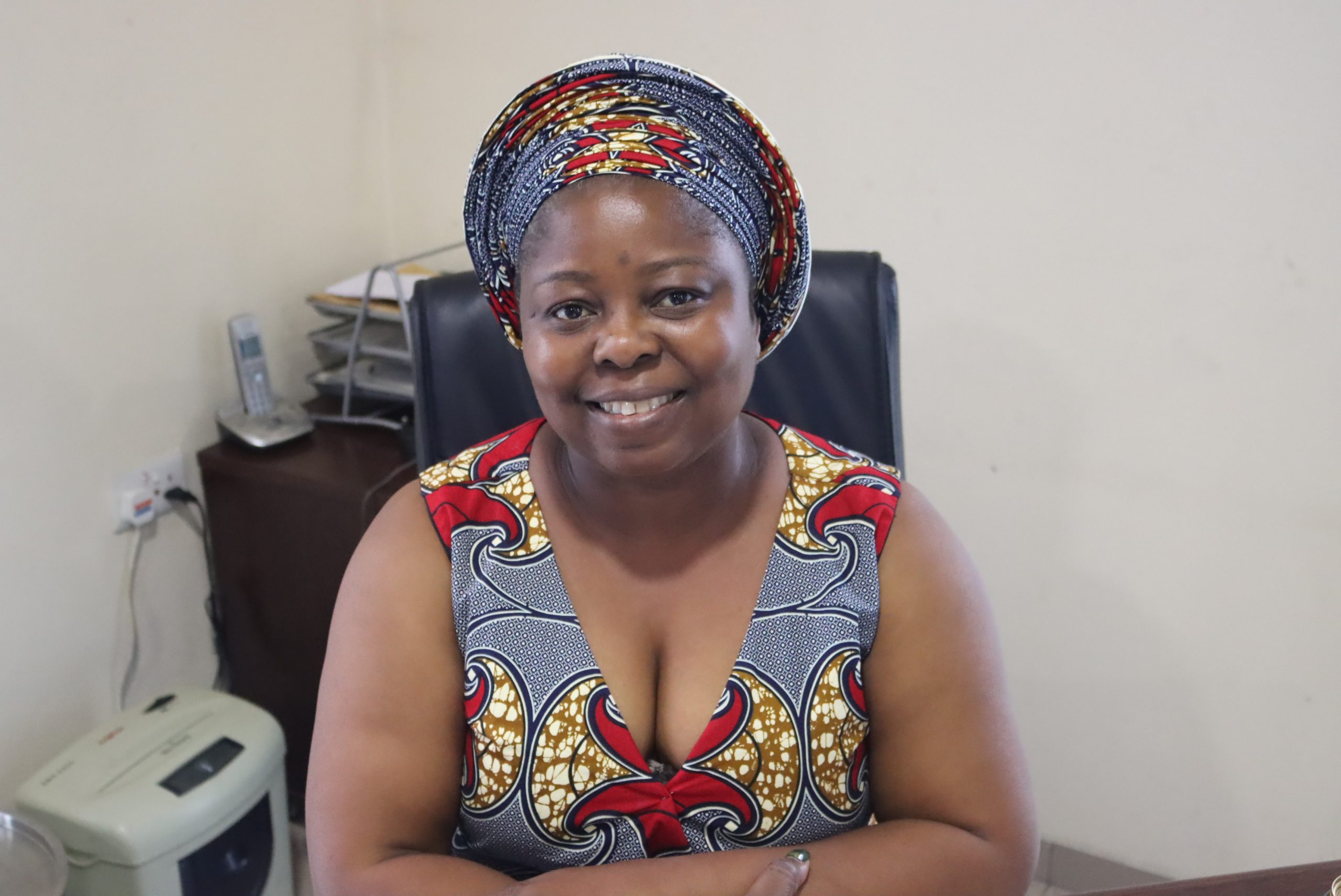
A political Initiative in Bayelsa State has said that it is poised to engender democratic ideals to make the November 11 gubernatorial election peaceful.
The Initiative, Diaspora 4 Diri (D4D) made its stand known during the inauguration of the state executives, local government and ward Co-ordinators, Saturday, May 27 in Yenagoa.
In her speech, the Founder, Dr Rosalyn Dressman, stated that the prevalent political culture would be changed through a consistent awareness campaign, opining that it could be achieved by teaching the electorate democratic norms, active citizenship participation and core democratic values.
Dr Dressman reiterated that the days of political violence, ballot box snatching, thuggery, amongst other electoral crimes are over, stressing that if the people can learn the English language and possibly use it as a lingua franca, they should also learn how to make things work democratically.
She explained further that in teaching core democratic values, the initiative will always inform, enlighten and empower the people. While, democratic norms will teach the people how to mutually interact, discuss and share ideas, rather than discussing people.
Dr Dressman, who is also the Technical Assistant on Diaspora to the governor, said changing the political narrative would also mean positioning the citizenry for responsive and accountable governance in the state, where the government in power could be held accountable for its actions and inactions.
She urged the participants to take the gospel to every nook and cranny of the state that D4D has come to encourage a needed change, just as the governor has changed the Infrastructural narrative, bringing development to the people through road constructions and others.
The Civil Society Activist enjoined Bayelsans to come out and thank Governor Douye Diri through their votes come November 11, 2023.
In his address, the State People’s Democratic Party (PDP) Chairman, represented by his Deputy, Hon Nengi Talbot Tubonah, assured the NGO of the party’s total support whenever needed, adding that among the civil societies working for Gov Douye Diri’s second tenure, the D4D is the most focused, organized with more purposeful and achievable goals.
He charged the officers to work as a team round the clock to achieve the lofty goals of the initiative.
On the brand of political ideals propagated by D4D, the deputy chairman affirmed that the political ideals propagated by D4D are same as those of Gov Douye Diri, stressing that the governor abhors thuggery, political violence and vote buying.
Reacting to questions on their capacities to advocate the ideals of the initiative, the Co-ordinators of Nembe, Ekeremor and Yenagoa revealed that the key word in achieving it is commitment.
They said the time is over due to sanitize the polity with programmes like those of D4D.
Highlights of the inauguration was paper presentation by two resource persons; Dr Makbere Ubonso Jacob and Dr Ekpotuatin Charles Ariye on The role of volunteers in electioneering process and Developing communication strategies for election campaign respectfully.

Politics
Father of Protests Fears Grand Kids’ Protests!
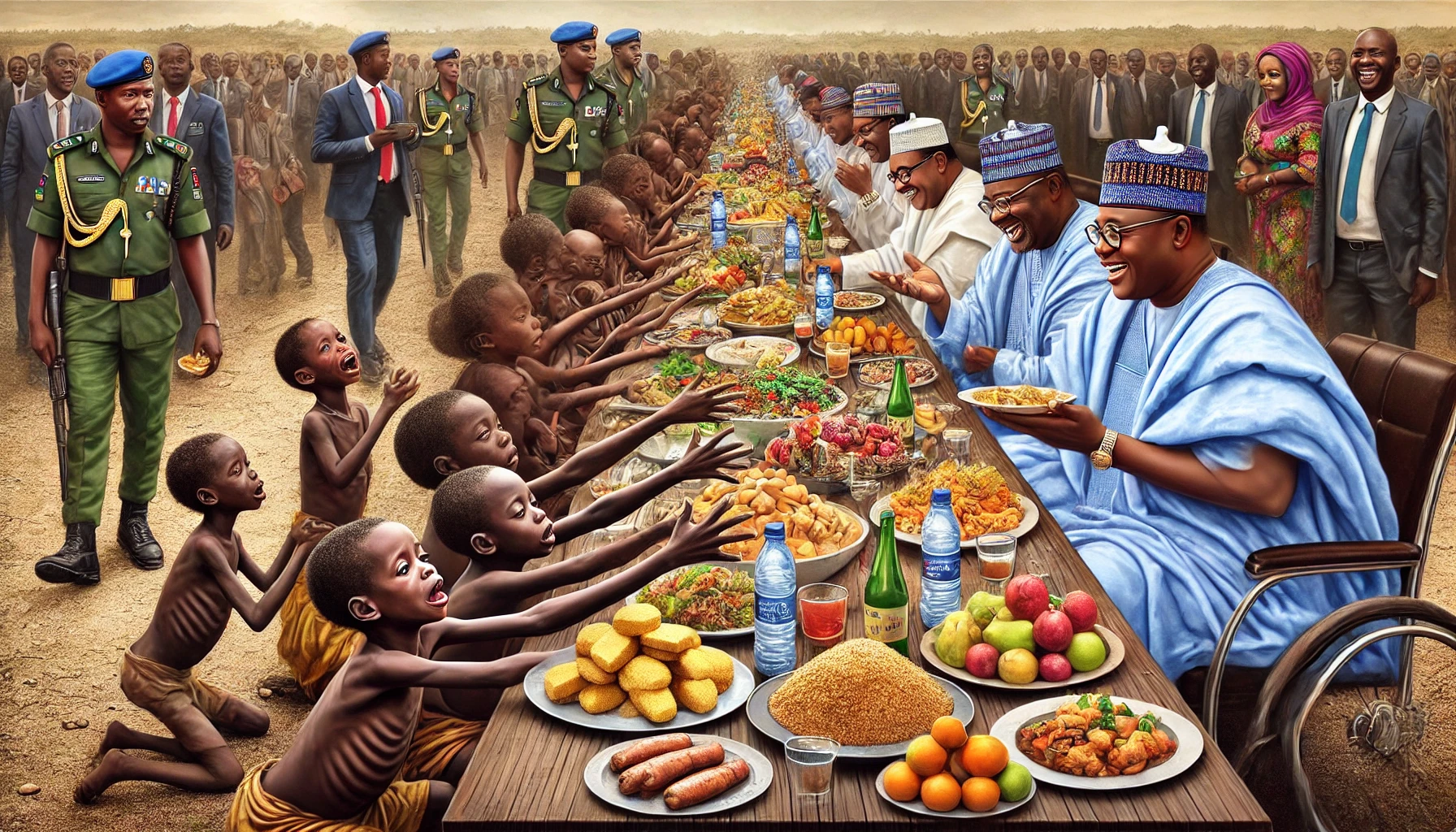
Tinubu’s leadership in the National Democratic Coalition (NADECO) during the 1990s marked a pivotal moment in Nigeria’s struggle for democracy. Opposing military mismanagement, he and fellow activists advocated for democratic governance, ultimately paving the way for Nigeria’s current political system. This activism may have been heavily influenced by luminaries like First Republic Western Nigeria leader, Chief Obafemi Awolowo, who showcased a commitment to democracy that resonated with Nigerians.
However, the current socio-political climate sharply contrasts with the altruism of the past. The looming protests scheduled for August 1, 2024, signal a significant civil unrest rooted in widespread dissatisfaction with Tinubu’s federal administration. Despite his attempts to pacify citizens, the populace is mobilizing, determined to confront economic hardships and governance failures head-on.
President Tinubu’s rise to power, marked by great expectations, may have devolved into disillusionment. Following his controversial decision to raise petroleum prices shortly after inauguration on May 25, 2023, hopes for transformative change have faded. Rising inflation and worsening wealth inequality have fueled concerns about the administration’s governance. The National Bureau of Statistics, Nigeria reports a 33% unemployment rate and significant socio-economic disparities, contributing to widespread frustration among citizens over the government’s effectiveness.
Political figures such as Peter Obi, a prominent opposition candidate in the 2023 presidential elections, have attributed the unrest to structural issues of hunger and economic frustration. Meanwhile, Tinubu’s supporters, including media helps Bayo Adenuga, continue to defend his administration, despite growing discontent among the general populace. This division underscores the deepening wound between expectation and reality.
Amidst this rising economic tensions, Nigeria’s youth, often referred to as “Generation Next,” are increasingly vocal about their frustrations. Characterized by their adept use of social media and grassroots organizing, this generation is focused on demanding transparency and accountability from their leaders. They juxtapose their plight against past protests like the 2020 #ENDSARS. Drawing inspiration from the activism that defined Tinubu’s early years while forging their own path forward they called #ENDBADGOVERNMENT!
In that context, Generation Next, a powerful force advocating for change mobilizes against stagnant opportunities, challenging the status quo and seeking redress for economic injustices. Their emergence stands in stark contrast to Wole Soyinka’s notion of the “Wasted Generation,” as they actively strive for a more equitable society, demanding their rights to basic needs and opportunities.
As the August 1 protests approach, citizens are not merely addressing economic hardships, but also the pervasive climate of corruption engulfing Tinubu’s administration. Allegations of misallocated funds and ineffective economic policies have led to skepticism regarding his promises of transparency and governance. This atmosphere of distrust has intensified calls for investigations and greater accountability, echoing the sentiments that initially drove Tinubu’s own activism.
Protesters seek accountability from leaders amid corruption and fading public trust. Their demonstrations reflect a generational desire for a government that represents their interests, symbolizing a broader struggle for equity and justice, empowering youth to challenge failing governance.
Faced with this mounting discontent, President Tinubu is seemingly confronted with a paradox: as the father of protests, he now finds himself fearful of the very movements he once inspired. The echoes of NADECO are inescapable, reminding him of his past struggles against military rule and fight for democracy. However, the current civil unrest poses a formidable challenge, placing his legacy in jeopardy.
The August 1 protests in Nigeria extend beyond economic hardships, representing a struggle for democracy and equity. Citizens aim to hold President Tinubu accountable and challenge his legacy. This moment underscores the need for reform and reflects on leadership responsibilities amid rising youth activism.
Culture and Entertainment
Onyeka Onwenu’s Enduring Legacy of Pan-Nigerian Reconciliation.
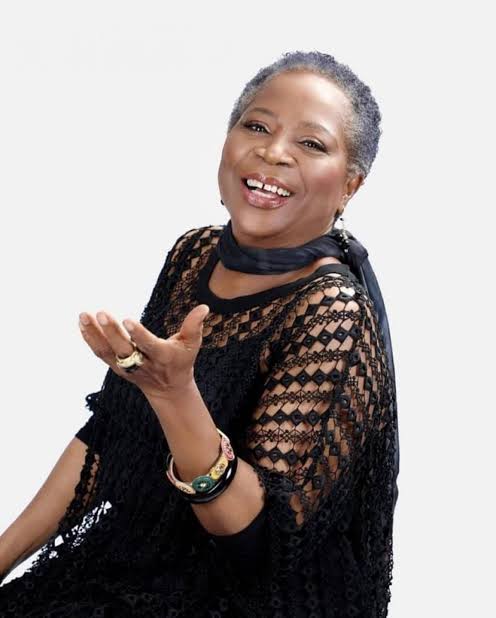
She was trained in notable scenic and beautiful lake woodlands community with a botanical garden, Wellesley College, Wellesley, Massachusetts, USA. That is about 12 miles west of Boston. She was also at The New School for Social Research situated in vibrant Greenwich Village neighborhood of New York City, USA. Those positioned her uniquely as both an advocate for social justice and a cultural ambassador.
Onwenu earned a BA in International Relations and Communication and an MA in Media Studies from both US institutions, returned and joined the Nigerian Television Authority (NTA), 1980. In 1984, Onwenu co-produced the BBC documentary ‘Nigeria: A Squandering of Riches,’ https://youtu.be/y-OzTxlstw8 critically examining resource mismanagement and corruption, solidifying her role as a social commentator and advocate for accountability, despite attracting controversy.
Internationally, it enhanced her recognition as an artist and activist committed to social justice, solidifying her reputation as a multifaceted figure advocating for positive change. The same streak of character influenced Onwenu’s music career, which also flourished, with songs often addressing social issues and promoting unity and peace
Born January 31, 1952, in Obosi, South-East Nigeria, she was a popular singer, journalist and advocate for women’s rights. The Nigerian Civil War (1967-1970) had profound impacts on Onwenu’s early life. More so, following her father, D.K. Onwenu, a prominent educationist and politician’s passing in a car accident, leaving the mother to raise five children alone.
Onyeka Onwenu’s Igbo heritage significantly shaped her post-Civil War career, earning recognitions from cultural organizations. She chaired the Imo State Council for Arts and Culture, led the National Centre for Women Development and engaged in politics through the People’s Democratic Party (PDP) to address social issues.
In the 1990s, Onyeka Onwenu shifted her music to Christian gospel, continuing her advocacy for women’s rights, health issues, and social justice. As Chairperson of the Imo State Council for Arts and Culture and Executive Director of the National Centre for Women Development, she envisioned a reconciled Nigeria founded on inclusivity and understanding among diverse ethnic groups. Her arts still promote dialogue, unity, and reconciliation in Nigeria, empowering marginalized communities, especially women, through education, activism, and media for social reforms.
Onwenu’s compassionate outreach extended to health awareness, particularly HIV/AIDS advocacy, where she integrated health campaigns with music, fostering a sense of community responsibility. Moreover, her role in “Half of a Yellow Sun” showcased Nigerian narratives to global audiences, promoting cultural pride and cross-cultural dialogue. In glory, Onwenu now unites art and advocacy for Pan-Nigerian reconciliation and change.
Politics
A Speech on Time Saves Trust.
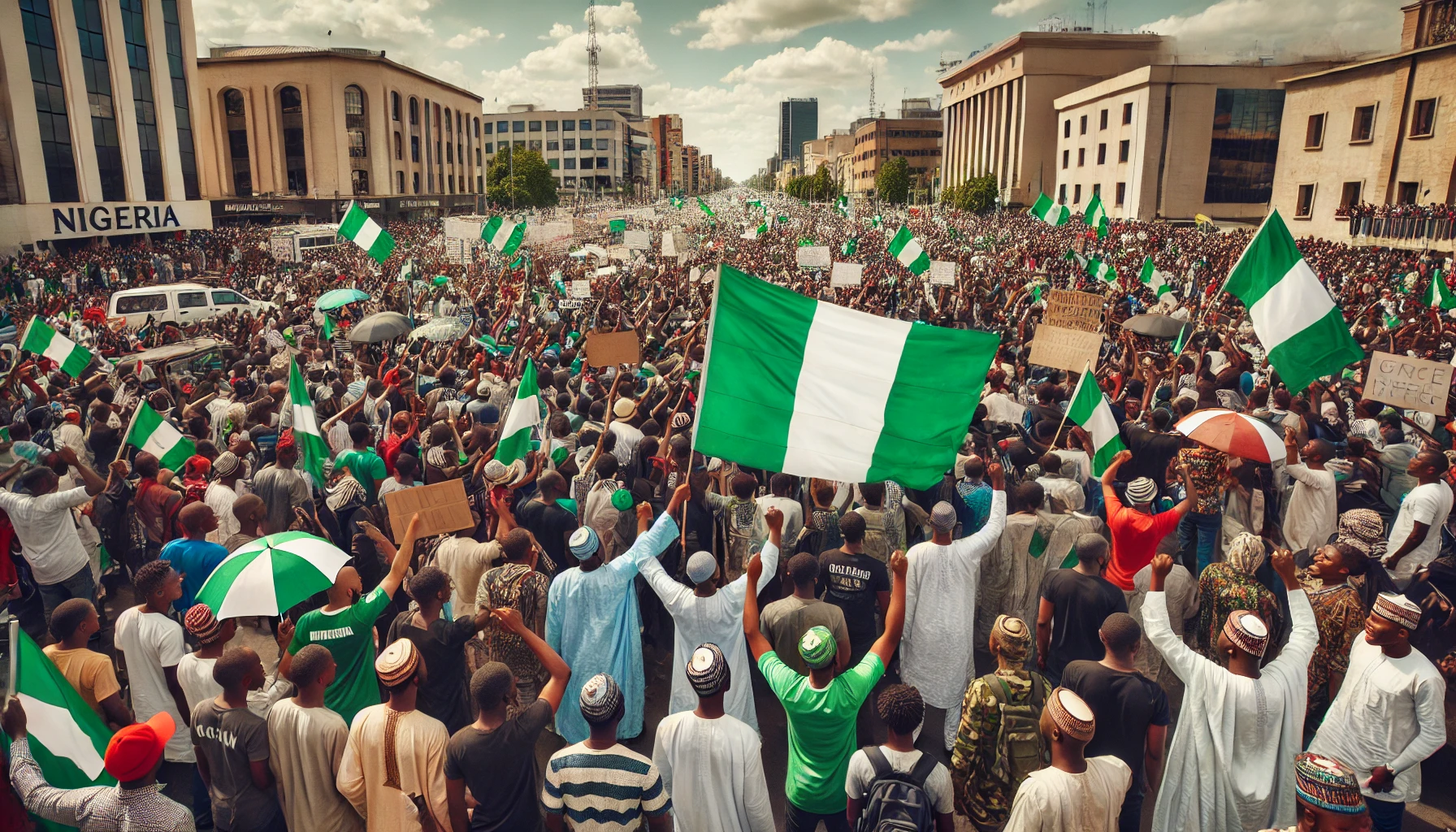
President Tinubu attempted to calm Nigerians during protests, restating aspirations similar to previous campaigns. He declared “My vision for our country is one of a just and prosperous nation where each person may enjoy the peace, freedom and meaningful livelihood that only democratic good governance can provide.” Albeit Nigeria’s complex socio-political challenges remain persistently scrutinized by analysts and activists.
First off, unshared in meaning social messaging resulted in trust deficit and evolved into the #ENDBANDGOVERNMENT and #ENDHUNGER protests. If both sides shared democratic ideals, Nigeria would retain trust, a cornerstone of governance. Tinubu’s speech recognized timeliness, but lacked clarity. Unlike Buhari, who delayed but earned trust, Tinubu’s approach is questioned by some Nigerians.
Trust reminds leaders to act on promises. Tinubu’s information-driven approach may calm nerves, breed trust and grow social cooperation and cohesion. But activists argue there’s a disconnect between government promises and Nigerians’ lived realities. Aisha Yesufu, a activist and a prominent voice of the 2020 #ENDSARS movement, asserts, “Trust cannot be built on a foundation of broken promises and unfulfilled commitments.” Nigerians feel disillusioned by repeated rhetoric without substantial change.
The National Bureau of Statistics (NBS) statistics illustrate realities with approximately 40% of Nigerians living below the poverty line in 2023. Activists urge the government to alleviate economic hardship beyond rhetoric, warning that without accountability and citizen upliftment, trust in government will erode further.
Amplifying Yesufu’s assertions politician and activist Omoyele Sowore, African Action Congress (AAC) 2023 presidential election candidate emphasizes need for genuine dialogue. “When leaders refuse to listen to the voices of the populace, they create a rift that can lead to unrest.” The insistence on obligatory communication leading to trust underscores the need to avoid popular discontent. Such activists’ counter reactions to Tinubu’s call for dialogue and suspension of protests, while maintaining order, sync with Dr. Ayo Olukotun, renowned Nigerian political scientist, media scholar, and columnist’s submission. “The timing of government responses often lacks the urgency of the crises they address.”
Critics question Tinubu’s revenue claims, citing governance flaws and economic instability, with EFCC sounding skeptical about fund usage even before now. “… we must be able to hold people accountable. If you have spent eight years, four years, even if it is one year… the position you are holding is a position of trust on behalf of all Nigerians. So, what we are simply saying is that when you finish, come, we want you to explain how you spent our common wealth while you are in the office” Despite 9.1 trillion Naira revenue, the public doubts benefits and struggles for economic stability persist.
Analysts stress the need for independent oversight to ensure effective implementation of government initiatives and resource use. The EFCC chairman again agrees, “We need to address the focus of our mandate… use the Commission to drive economic development… for the system to thrive, for the economy to grow, for the society to get better. Therefore, our focus should be geared towards developing the nation for greater benefits”
Where does that leave Tinubu’s position that, “Just over a year ago, our dear country… reached a point where we couldn’t afford … temporary solutions to solve long-term problems …’ So, “On the fiscal side, aggregate government revenues have more than doubled… compared to the first half of 2023.”
The President insists, “Yes, I agree, the buck stops on my table…I am focused fully on delivering the governance… good governance for that matter.” He solicits, “Let nobody misinform and miseducate you about your country or tell you that your government does not care about you.” Tinubu’s statement implies that balancing security and civil liberties is crucial, as maintaining order can infringe on individual rights.
Human rights organizations caution against security forces’ abuse during protests, urging the government to address root causes of public discontent. And that seem to be the case where, at, ‘… least 22 protesters have been reported killed; injuries include, ‘…at least 175 people injured; arrests up … Over 1,100 protesters have been arrested.’
Nigeria’s diverse community reflects a fragmented national identity; therefore, trust is essential for social cohesion. Effective communication and accountability in leadership and relationships are crucial for fostering unity. Immediate efforts are needed to build and define this trust.
Business
THE MODEL PERSONA – What is a Nigerian?
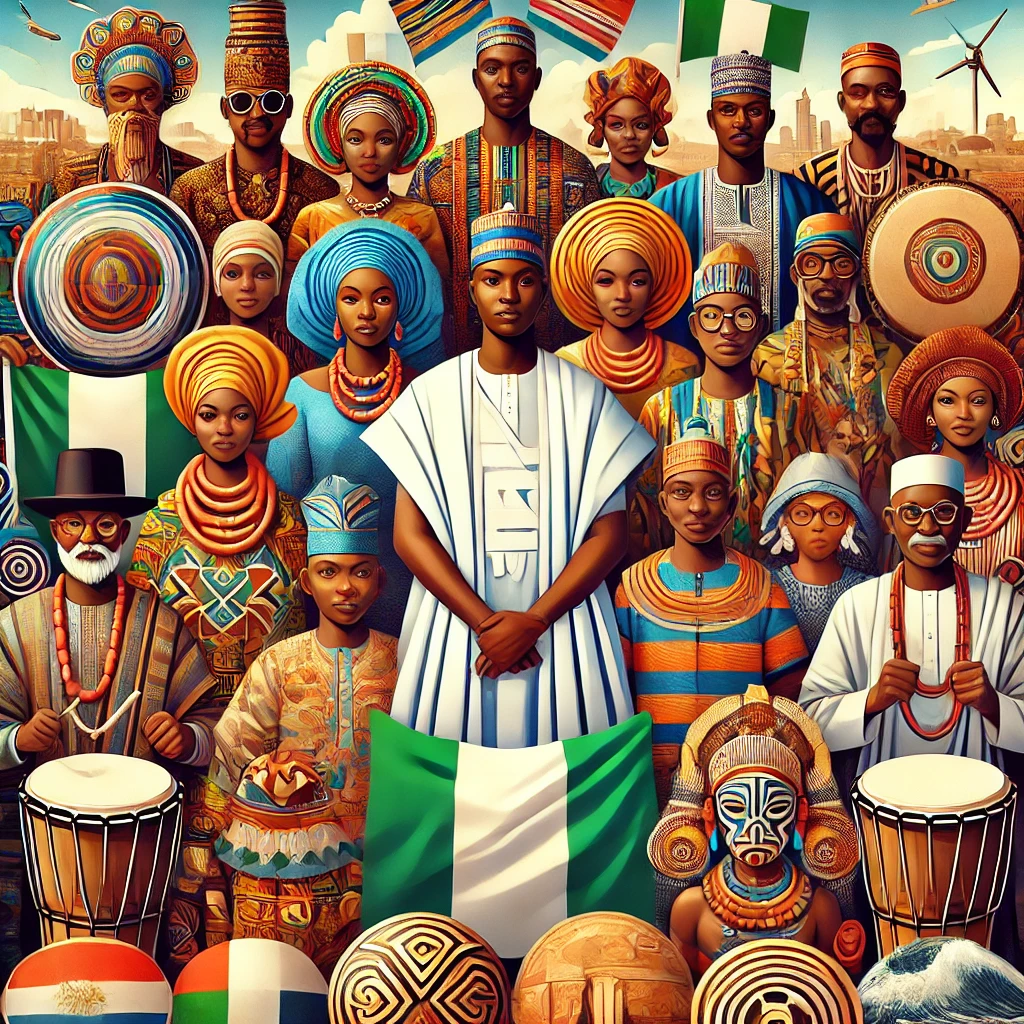
Should we be asked the question, ‘Who is the Nigerian,’ could we not rather provide an answer for, ‘What is the Nigerian?’ Such, should be one of many answers for every respective ignorant or informed Nigerian, to bestow a sense of nationhood.
Nigeria is a vibrant geography with diverse culture, a strong sense of overcoming challenges and rich potential to fulfil global perception as a black power. However, the complex mechanisms of unity, identity and desired need for progress towards the stated, can only be envisioned by understanding the essential Nigerian person. There are themes that could shape such a Nigerian identity today, amidst ongoing socio-political changes and sometimes, combative cultural diversity.
Unity and National Identity are perhaps the most longstanding quests for Nigeria since independence from British colonial rule on October 1, 1960. Nigeria’s 250 plus ethnic groups and numerous languages may have become agreeable with English language of all shades helping articulate relationships across cultural, political, economic and neo-liberal Anglo-American circumstances or situations. And one is tempted to suspect Nigeria might actually be a China shop with a bull running through the four winds of the compass.
Therefore, the concept of crafting a unified Nigerian persona or identity can only be reemphasized. There lies the importance of fostering a sense of belonging and shared identity among diverse ethnic groups. As Olagbaju, Opeoluwa(5 (9): 63-67; 2015) Nigerian academic and researcher discusses: social change in Nigeria requires the understanding of socio-cultural, political, and economic transformations to bridge divides and foster unity.
What might well be Opeoluwa’s position is the deconstruction of colonial-era artificial identities to achieve national unity. By dismantling these imposed divisions, Nigeria can move towards a more inclusive and harmonious national identity. This seems to confirm the recent, ‘Hunger Protest!’ So, do Nigerians need vicissitudes to get identified as Nigerians; indeed, for the sole of purpose of having a popular will? In his essay “The Trouble with Nigeria,” Achebe emphasizes that Nigeria’s national identity is often tested by its social and political challenges. He suggests that collective experiences of conflict and hardship can instill a sense of unity and purpose among Nigerians, thereby shaping their national identity.
Nigeria can fill a room of scholars with prospects of what is called, ‘Culture,’ given replicate cultural dialectics across the country. The problem is whether all scholars in attendance would offer equal recognition for all those Nigeria’s diverse cultural experiences. Really, towards finding that important mutual and crucial national inclusion and cohesion.
A retrospect may be right about Ayodele Haruna Mustapha’s (Mustapha, A. H. (11(2), 35-54, 2020) seeming unsuccessful conviction of Nigerians that Nigeria’s foreign policy and effective diplomacy given its role in regional integration, can best be achieved from national unity. That seems like counselling, ‘Sort thyself, before others;’ to calm any disgruntled inconsequential. Those that would otherwise have helped foster inclusiveness, respect and understanding. This advocates for social justice to address socio-economic disparities, transcending tribal and geographical ignorance in Nigeria.
The equitable distribution of resources and opportunities based on national need, meritorious skills and experience and integrity, becomes real factors to achieve national before regional integration. Therefore, equal opportunities will use skills and rounded education. Such a national agenda would emphasize historical thrust, envisioning a collective into the next decades to melt ethnic and cultural divides.
Nigerian’s protests against misgovernance and hunger reveal cultural disrespect and social injustice. They profess unity and inclusivity as national identity. Accordingly, the Nigerian archetype persona can be woven from diverse cultural threads, historical legacies and current collective quest to overcome challenges. Shared objections may almost always happen, but social justice is always likely to bridge ethnic and regional divides, fostering a collective national vision and identity.
Really, being Nigerian means embracing diversity, fostering understanding, striving for social justice and exercising legitimate influence for regional and global presence. Now, ‘Who is a Nigerian?’
Politics
Incumbency Power
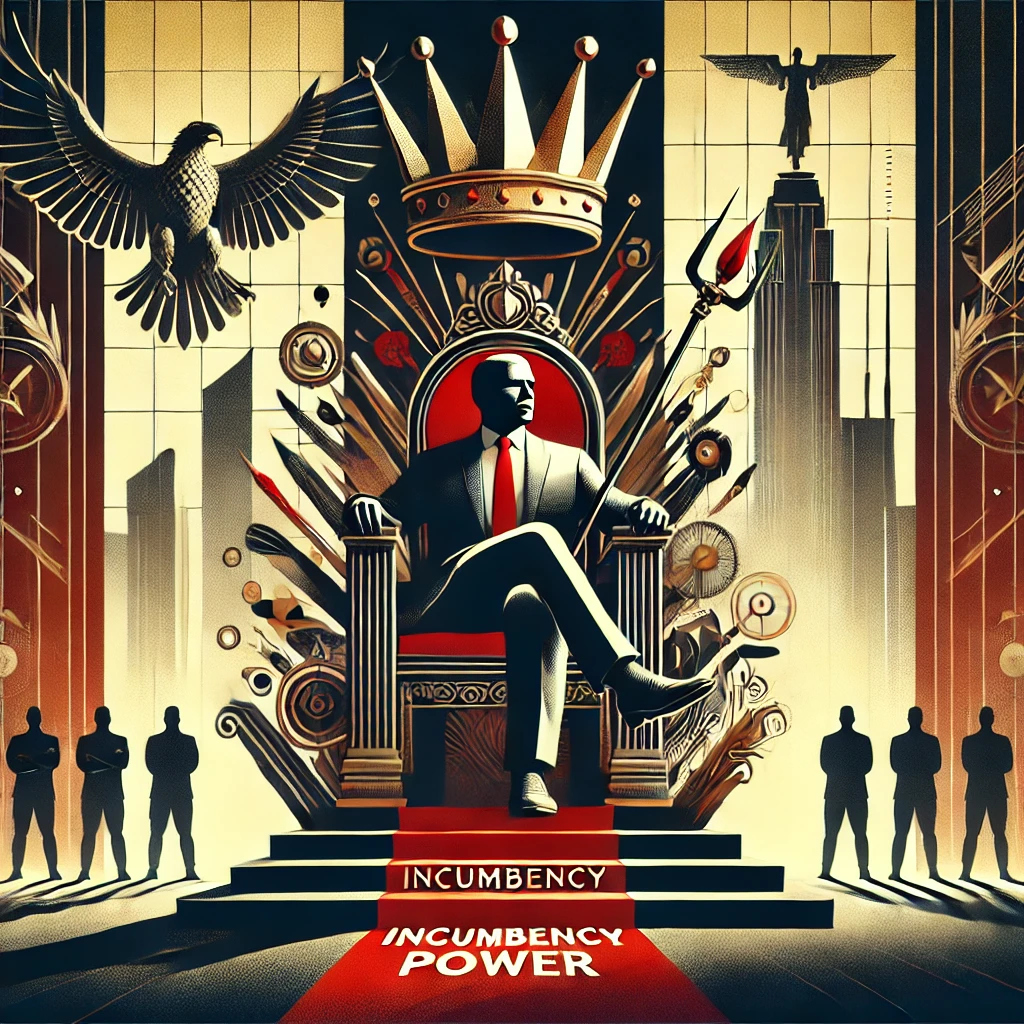
WHAT WILL YOU LEAVE BEHIND?
The interconnectedness and interdependence of globalization are reshaping our world, challenging traditional notions of “home” and fixed identities. This shift has given rise to the diasporic experience, where individuals navigate multiple cultural identities and exist in “liminal spaces” between different cultures. So, where will identity eventually feature in a world of increasing interconnectedness?
Identity is the unique set of qualities, characteristics, and experiences that define who an individual is. For those living in the diaspora, the concept of “home” becomes complex, as displacement from ancestral roots often results in a lifelong journey of reconciling multiple cultural identities. Cultural theorist Homi K. Bhabha describes this as occupying a “third space”—a betwixt and between zone, between original culture and settled culture.In the later, new hybridized identities are formed; in-between status fostering a profound sense of dislocation as individuals navigate multiple worlds, constantly renegotiating their sense of self.
This is where the concept accelerating interconnectedness and interdependence is leading; to the emergence of a single, unified global society. A 2020 United Nations report posted an estimated 281 million international migrants worldwide, grown by over 50% in the past two decades.So where how will identities playout in this ancient or primeval urge by humanity to flow to new homes, possibly sustaining old identities. Really, as ingrained sense of “home,” also sustains accustomed ways and means, and lifestyles.
How should migrants even create and enjoy a sense of belonging counter to the above? Leila Aboulela, a Sudanese-Scottish author, captures the experience of belonging in her novel “The Translator”: “I’m neither here nor there, always suspended between two worlds, two identities, two homes. I’m a foreigner everywhere, even in my own country.” This feeling of not fully belonging to any one place is common in diasporic literature and personal accounts.
There arises a strong need for acculturisation or cultural integration, because the diaspora could suddenly discover that homesickness may not be beneficial; really an African individual enjoys family crowd than would European or North Americans. And family is where a lot of migrants from family-minded soceities find emotional resonance. But what if the African migrant in Eurpe suddenly finds that resonance awkward, by the time he or she goes and is sometimes enstranged by sudden ‘unfamiliar’ homeland orientations.
This is wheere sociologist Avtar Brah elaboration on the notion of “homing desire,” the yearning for a place that is both physically and emotionally resonan becomes complicated. The “homeland” may have changed significantly since their departure, or it never truly felt like home. Thrown back into the diaspora home, it feels like a space of constant negotiation, where individuals reconcile inherited cultural legacies with present-day lived experiences.
It become a tale with many shades, which novelist Chimamanda Ngozi Adichie speaks about in the challenge of reconciling her multiple cultural identities: “I am an Igbo woman, I am a Nigerian, I am an African, and I am a citizen of the world. I don’t think that any one of those identities is more important than the other.” For those navigating the diasporic experience, the quest for identity and belonging is often complicated by societal perceptions and the burden of representation.
How then should migrants situate their individualists in seriously individualised occidental soceities. Novelist Zadie Smith, born in London to a Jamaican mother and an English father, writes about the frustration of being “always the only one” in majority-white spaces, bearing the burden of representing her entire racial and cultural heritage. There is no let; indeed diasporic individuals of necessity, constantly renegotiate their sense of self in response to external forces shaping their experiences.
Invariably this calls for utilitarian assimilation , balanced against preservation of cultural diversity. Arjun Appadurai, an athropologist describes the diaspora as a “deterritorialized” space, where “the imagination is freed from the constraints of everyday life and given new resources and ideas to explore the multiple possibilities of human life.” He means to say diasporic individuals are empowered herethereto, to craft new, hybridized identities resisting binary categories of “here” and “there,” “us” and “them.” This could help ease tension between nationalism and internationalism. Paul Gilroy’s cultural theory therefore argues that the diaspora can become a “counter-cultural” force, challenging fixed, essentialist identities and national boundaries. This dynamism and creative potential are evident in diasporic art, literature, and cultural production, challenging the traditional notions of nationalism and embracing a more global perspective.
The Impact of Homogenization on Personal and Collective Identity
Sociologist Stuart Hall discusses the “crisis of identity” experienced by many in the diaspora, as they grapple with the “fragmented” and “unfinished” nature of their sense of self. Reconciling multiple, often competing, cultural influences can lead to feelings of displacement, uncertainty, and a profound sense of loss.
The Negotiation of Multiple Identities in a Globalized World
The diasporic subject is a powerful emblem of our interconnected, globalized world a testament to the fluidity of identity, the richness of cultural exchange, and the enduring human need for connection and belonging. By embracing the hyphen, the diasporic individual becomes a living embodiment of the possibilities that arise when we transcend fixed, essentialist categories and embrace the multiplicity of lived experiences.
The Role of Tradition, Heritage, and Traditions in a Unified Global Society
In this unified global society, the diasporic individual’s ability to navigate multiple identities becomes a model for the negotiation of tradition, heritage, and modernity, illustrating the potential for a harmonious coexistence of diverse cultures and the preservation of cultural diversity within the broader context of globalization.
Conclusion
The diasporic experience offers a powerful lens through which to understand the evolving nature of identity in a globalized world, emphasizing the fluidity of cultural exchange, the importance of embracing multiple identities, and the potential for a more harmonious coexistence of diverse cultures. As the world grapples with mass migration, shifting demographics, and the erosion of traditional notions of nationhood, the insights and perspectives offered by the diasporic experience are increasingly relevant. Charting their journeys of identity and belonging, diasporic individuals redefine what it means to be “at home” and offer a blueprint for navigating the complexities of our rapidly changing global landscape.
Politics
Bayelsa State Government’s Holistic Model for Social Accountability in Governance
Business
Security System in Nigeria: Challenges and Opportunities for Improvement
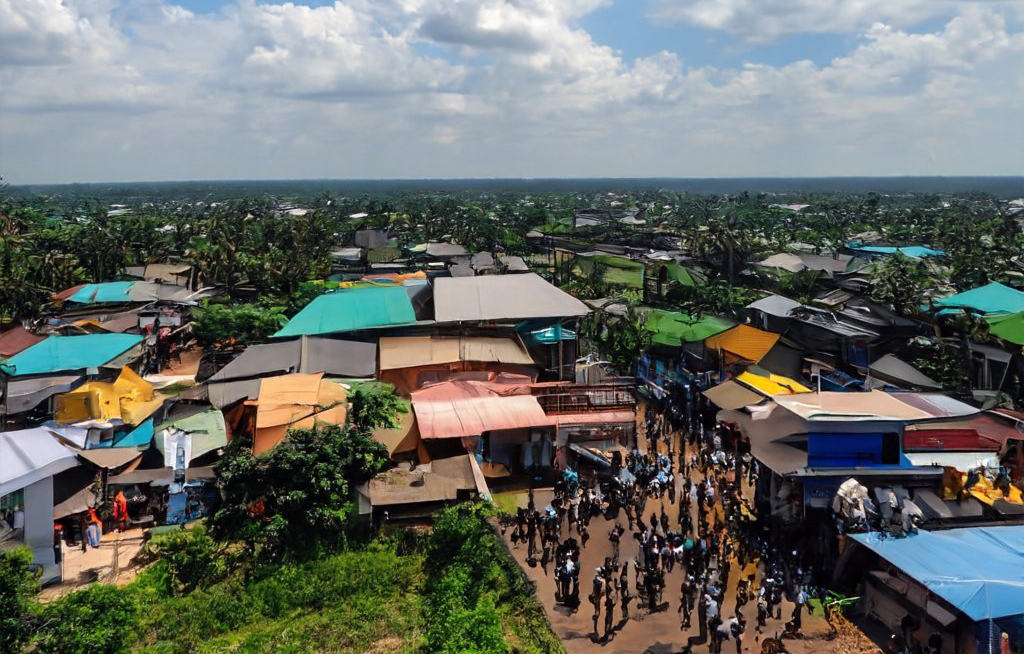
Nigeria, as the most populous country in Africa, faces a myriad of security challenges that have significant implications for its stability, development, and prosperity. From insurgency and terrorism to communal conflicts, kidnapping, and cybercrime, the country’s security landscape is complex and multifaceted. Enhancing the security system in Nigeria is crucial not only for safeguarding the lives and property of its citizens but also for creating an environment conducive to economic growth, social harmony, and sustainable progress.
Current Security Situation
The security situation in Nigeria is characterized by a range of persistent challenges. The activities of insurgent groups such as Boko Haram in the northeastern region have resulted in widespread violence, displacement of populations, and loss of lives. Additionally, the menace of banditry and armed robbery has plagued various parts of the country, leading to fear and insecurity among the populace. Communal conflicts, often fueled by ethnic and religious differences, have also contributed to instability in several states.
Furthermore, the issue of kidnapping for ransom has become a lucrative criminal enterprise, with high-profile abductions garnering national and international attention. Cybercrime, including online fraud and identity theft, poses a growing threat to individuals, businesses, and government institutions. Moreover, the proliferation of small arms and light weapons exacerbates the security challenges, making it more difficult to contain criminal activities.
The Role of Government
The Nigerian government has a fundamental responsibility to ensure the safety and security of its citizens. It is imperative for the government to prioritize security as a core component of its governance agenda. This includes allocating adequate resources to security agencies, enhancing intelligence gathering capabilities, and formulating policies that address the root causes of insecurity.
Additionally, fostering interagency collaboration and coordination is essential for optimizing the effectiveness of security operations. By promoting synergy among law enforcement agencies, intelligence services, and the military, the government can improve its ability to respond to security threats promptly and decisively.
Community Engagement
Engaging communities in security matters is pivotal for crime prevention and maintaining law and order. Community policing initiatives, which involve partnering with local residents to identify and address security concerns, can help build trust between law enforcement agencies and the populace. Furthermore, empowering communities to take ownership of their security through neighborhood watch programs and public awareness campaigns can contribute to a safer society.
Utilizing Technology
The integration of modern technology into Nigeria’s security system can yield significant benefits. The deployment of surveillance cameras, drones, and other advanced monitoring systems can enhance situational awareness and enable proactive measures against criminal activities. Furthermore, leveraging data analytics and artificial intelligence can bolster intelligence gathering and analysis, thereby improving the ability to predict and prevent security threats.
Capacity Building
Investing in the capacity building of security personnel is paramount for enhancing their effectiveness in combating evolving security challenges. Continuous training programs, skill development initiatives, and provision of modern equipment are essential for equipping security forces with the necessary tools and expertise to address complex threats.
Collaboration with International Partners
Given the global nature of security threats, collaboration with international partners is crucial for Nigeria’s security system. Cooperation with neighboring countries and international organizations can facilitate intelligence sharing, joint operations against transnational crimes, and access to technical support and expertise.
Economic Development and Social Welfare
Addressing the underlying factors that contribute to insecurity requires a holistic approach that encompasses economic development and social welfare. By creating job opportunities, promoting entrepreneurship, and investing in education and healthcare, Nigeria can mitigate vulnerabilities that drive individuals towards criminal activities. Additionally, initiatives aimed at addressing social inequality, promoting social cohesion, and fostering inclusivity can contribute to reducing tensions that lead to conflicts.
Conclusion
Enhancing the security system in Nigeria is a complex but imperative task that demands a comprehensive approach involving government leadership, community engagement, technological innovation, capacity building, international collaboration, and socioeconomic development. By addressing the multifaceted nature of security challenges and implementing effective strategies, Nigeria can create a safer environment for its citizens and pave the way for sustainable progress and prosperity. It is essential for all stakeholders to work together towards achieving a secure and resilient future for Nigeria.
Politics
Jonathan charges world leaders to enthrone peace
The world will be better when we commit to building on the common ground we all share as one human family and promoting democracy.
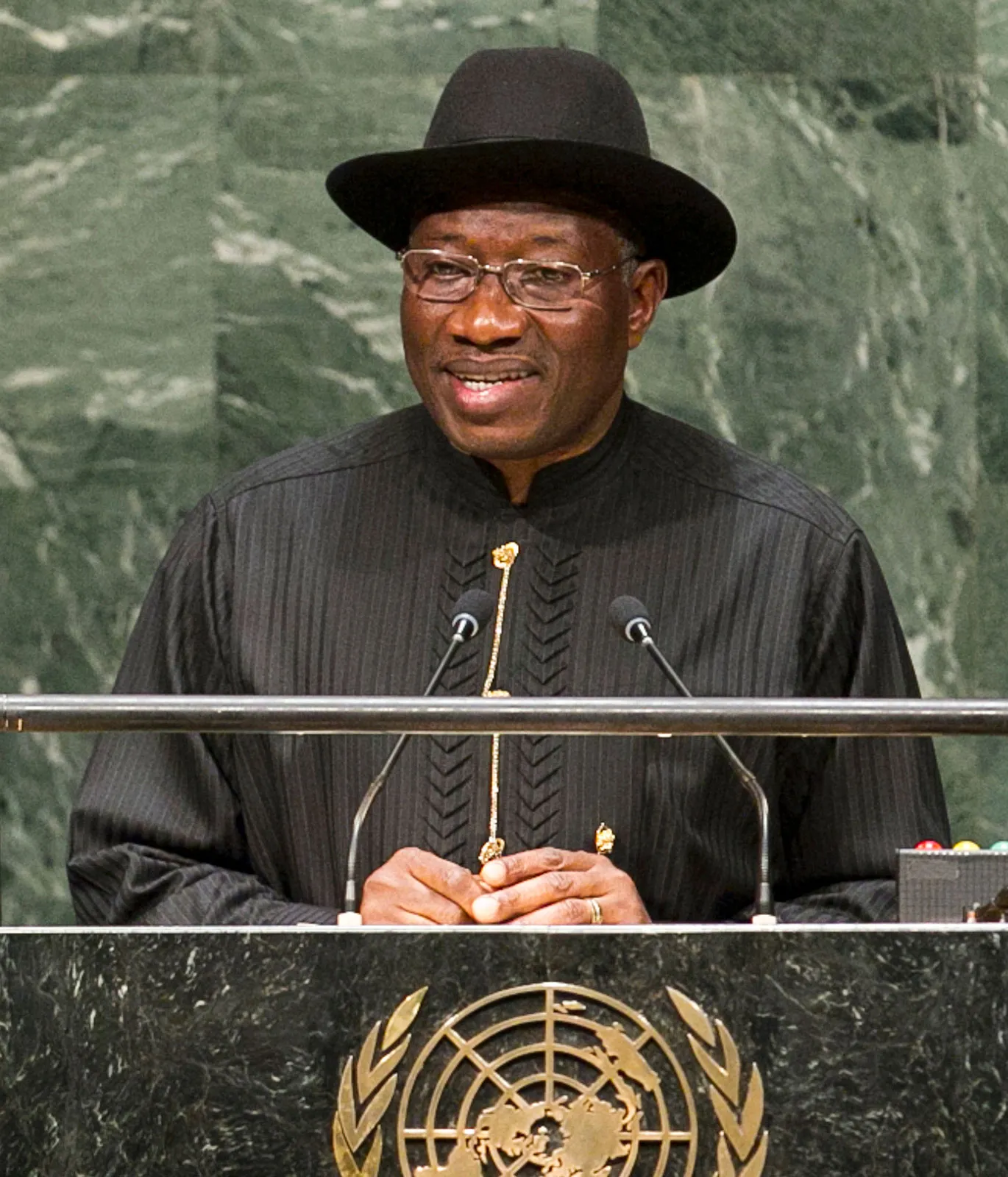
Former Nigerian President Dr. Goodluck Jonathan has charged global leaders to seek to enthrone peace in the world through the practice of true democracy and people-oriented leadership in their respective countries.The former President specified this on Saturday July 22nd 2023 in Phnom Penh, Cambodia, at the International Leadership Conference, jointly organised by the International Association of Parliamentarians for Peace (IAPP) and the Asian Vision Institute (AVI).
The former President who spoke a day before the Cambodian general election in an interview said: “We are all happy to be here today and we will be glad to witness the good people of this great country exercise this democratic right on Sunday, to elect the leaders of their choice for the next governance cycle in Cambodia.
“I urge world leaders to truly imbibe and embrace these principles of true democracy by not just overseeing routine elections but conducting elections that are free, fair, inclusive, transparent and credible towards placing governance at the service of the people and establishing a culture of global peace and harmony.“ talking about elections, it is important to note that election value chain through voting in the field, processing and collating of results to announcement of the outcomes, and in some countries, the judicial procedures where the processes go through litigations, must be built on a solid foundation of justice for democracy to function effectively.
“The International Summit Council for Peace, ISCP-Africa, which I share, will continue to advocate for a democratic culture rooted in free, fair elections, rule of law and good governance.”He further charged world leaders and nations to foster mutually beneficial cooperation and interdependence in the interest of global wellbeing and harmony. In his statement he said: “The world will be better for it when we commit to building on the common ground we all share as one human family and promoting greater solidarity among all peoples.
“On this note, let me remind all of us that before COVID-19 Pandemic, some nations had been under the impression that they could survive solely on their own. However, the COVID-19 experience has made it very clear that the whole world must work together for the peace and security of humanity. Of course up to this time, many nations are still struggling to recover from the harmful effect and deadly impact of the pandemic.
The experience has indeed demonstrated the need for inter-dependence, mutual prosperity and shared values as enunciated by the Universal Peace Federation (UPF).”Jonathan also made a case for good governance, which he described as the trigger for political stability, progress and inclusive development, adding that world leaders should commit to building on the common ground of promoting a democratic culture anchored on justice and solidarity among all peoples.
Speaking on the need for true democracy, Dr. Jonathan noted that when citizens are allowed to freely exercise their electoral mandate, they would be voting for lasting peace and sustainable development and standing up against repression, dictatorship and abuse of the rights of citizens.
Politics
Democracy is a continuous journey…
Dr. Dressman encouraged Nigerians to use Democracy Day as an opportunity to honor and appreciate the principles of democracy, which form the foundation of people’s rights and freedoms, rather than merely considering it as another important date on the calendar.
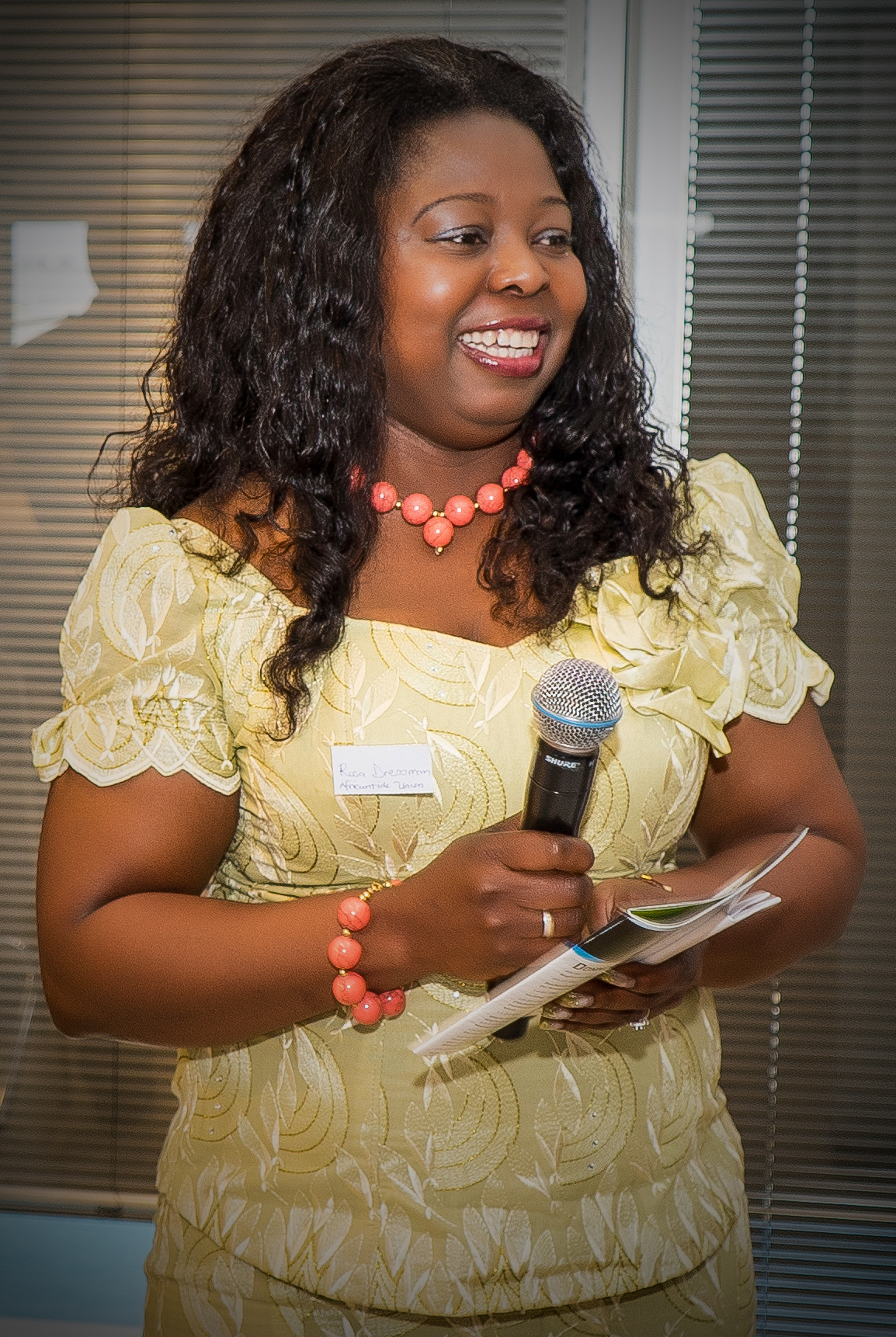
Dr. Rosalyn Dressman, the President and Founder of the Diaspora 4 Diri (D4D) Initiative, delivered a Democracy Day message urging Nigerians to remember and honor those who sacrificed their lives for the establishment of democracy in the country. Speaking at an interactive session with the group’s state, local government, and ward leadership on June 12th, Dr. Dressman emphasized the importance of protecting the hard-earned democracy and called for concerted efforts to promote its ideals.
According to Dr. Dressman, democracy is a pact between the government and its people, a commitment that guarantees the freedom of expression, the right to elect representatives, and participation in decision-making processes. She commended the Governor Douye Diri-led administration for fulfilling its promises to the people of Bayelsa by initiating projects and programs aimed at improving their living conditions.
Dr. Dressman encouraged Nigerians to use Democracy Day as an opportunity to honor and appreciate the principles of democracy, which form the foundation of people’s rights and freedoms, rather than merely considering it as another important date on the calendar. She emphasized that democracy is not just a word or concept, but a living entity driven by the will of the people.
The D4D Founder expressed that democracy is the belief that power should be distributed among the many rather than being concentrated in the hands of a single ruler, a select few, or a privileged class. It ensures that the rule of law prevails and that justice is served, regardless of the strength of the oppressor’s influence.
Dr. Dressman highlighted that democracy is a continuous journey, not a static achievement, and therefore requires constant vigilance, engagement, and participation from all individuals. She called for unity among Nigerians, emphasizing that the strength of the country’s democracy lies in its diversity.
During the interactive session, a minute of silence was observed to honor the departed souls of the Bayelsa Queens Supporters Club and the band members of the Ijaw musician, Barrister Smooth.
-
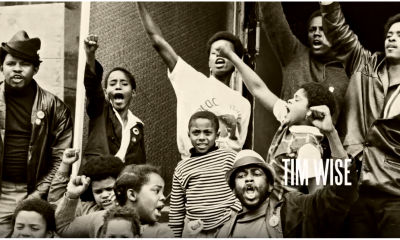
 Documentaries2 years ago
Documentaries2 years agoFilm Review | OUT OF DARKNESS Untold history of African people
-
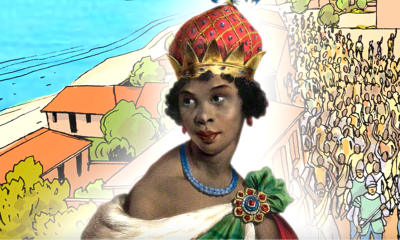
 Documentaries2 years ago
Documentaries2 years agoQueen Nzinga: A Symbol of Resistance and Power in 17th Century Angola
-
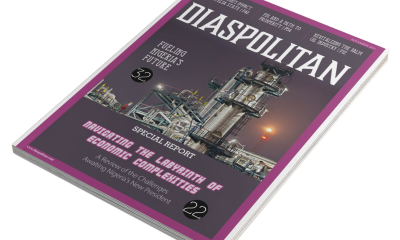
 Magazine1 year ago
Magazine1 year agoMedian Issue
-
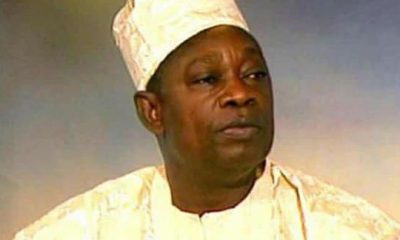
 Retrospect2 years ago
Retrospect2 years agoThe Arrest of Moshood Abiola
-
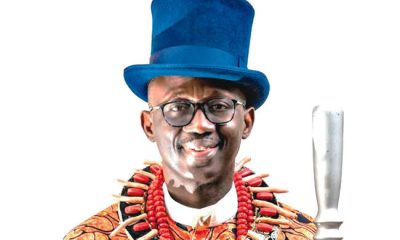
 Society2 years ago
Society2 years agoKing Dakolo speaks out on Crude Oil theft in Nigeria
-

 Health2 years ago
Health2 years agoProvision Of A Framework For Vaccination In Nigeria
-
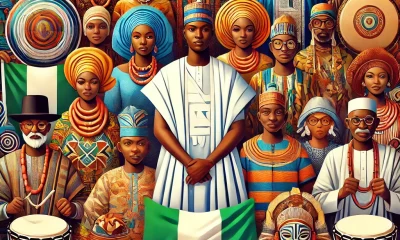
 Business11 months ago
Business11 months agoTHE MODEL PERSONA – What is a Nigerian?
-
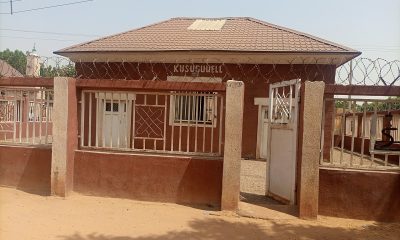
 Culture and Entertainment12 months ago
Culture and Entertainment12 months agoThe Kusugu Well: A Legend of Bravery and Triumph
-
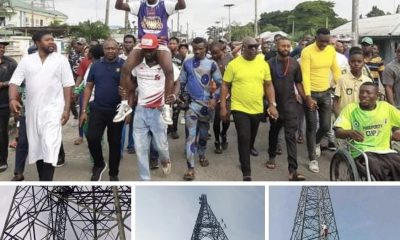
 Society2 years ago
Society2 years agoBayelsa Juggler Ball broke Guinness world record
-
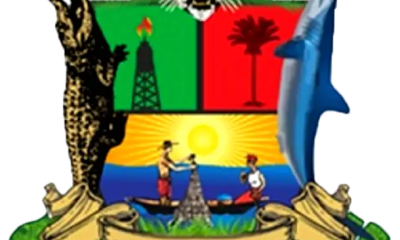
 Business2 years ago
Business2 years agoBayelsa State Government Invests N154 Million to Boost Reven
-

 Health2 years ago
Health2 years agoBauchi Recommended A Six Months Maternity Leave
-
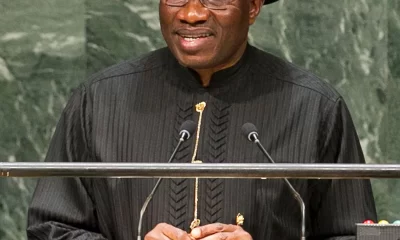
 Politics2 years ago
Politics2 years agoJonathan charges world leaders to enthrone peace
-
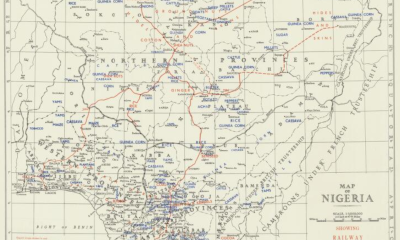
 Retrospect2 years ago
Retrospect2 years agoThe June 20 1963 State of Emergency
-
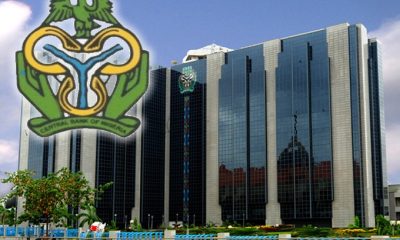
 Business2 years ago
Business2 years agoThe new CBN payout policy for Diaspora remittances
-
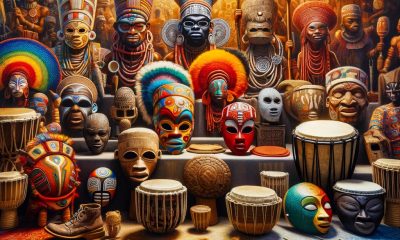
 Culture and Entertainment2 years ago
Culture and Entertainment2 years agoIgbo Culture: An Emblem of Nigerian Heritage
-
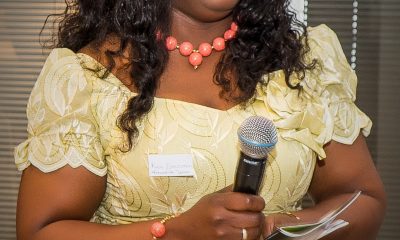
 Politics2 years ago
Politics2 years agoDemocracy is a continuous journey…
-
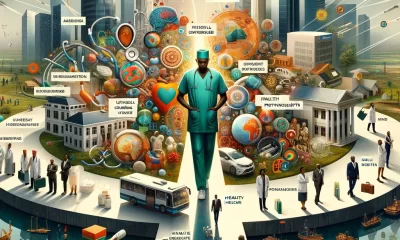
 Health1 year ago
Health1 year agoThe journey towards improving the healthcare system in Nigeria
-
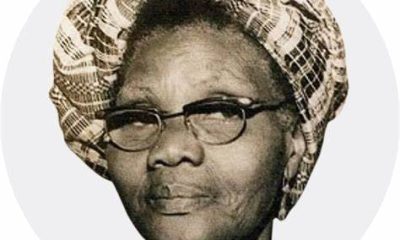
 Retrospect12 months ago
Retrospect12 months agoFunmilayo Ransome-Kuti: The Fela Anikulapo-Kuti and Wole Soyinka DNA Strands
-

 Health2 years ago
Health2 years agoLagos: Rage Of Doctors Over Deceased Colleague, Demands Pros
-
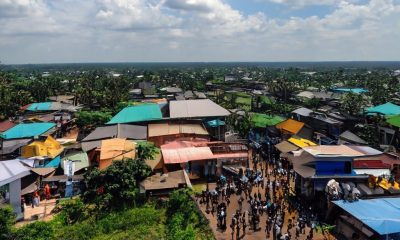
 Business1 year ago
Business1 year agoSecurity System in Nigeria: Challenges and Opportunities for Improvement

